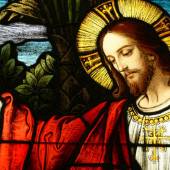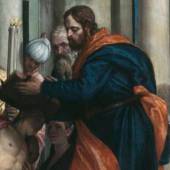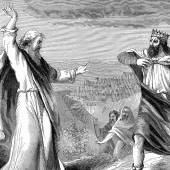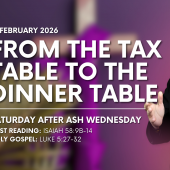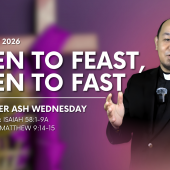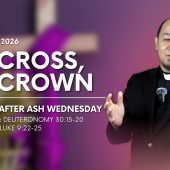Payment of the tax

Monday, 19th Week in Ordinary Time (August 9, 2021)
Daily Readings: Deutronomy10:12-22 & Matthew 17:22-27
For the second time, Jesus warns His disciples about what is to yet come: His suffering, death, and resurrection. Once again, the word 'delivered' or 'handed over' is used by Jesus. It is a kind of refrain running right through the Gospel and applied to John the Baptist, to Jesus, to the disciples, and the giving of the Body of Christ in the Eucharist.
While the second part of today's Gospel passage is a peculiar scene, which is found only in Matthew: the collectors of the Temple tax want to know whether Jesus pays it or not. Peter assures them that He does.
Indeed, who likes to pay taxes, especially when we think that they are unreasonable or unjust? It was not an issue of tax evasion by Jesus and His disciples. When questioned about paying the temple tax, Jesus replied to His disciples: We must pay so as not to cause a bad example. In fact, we must go beyond our duty in order that we may show others what they ought to do.
The scriptural expression to give no offense does NOT refer to insult or annoyance; instead, it means to put no stumbling block in the way of another that would cause them to trip or fall. Jesus would not allow himself anything which might possibly be a bad example to someone else.
Nevertheless, Jesus asks Peter (though, interestingly, he calls him by his old name 'Simon'): "Do kings collect tax from their sons, that is, their subjects, or from foreigners?" "From others," replies Peter. And, in fact, the Romans did collect taxes from their colonized peoples and not from their own citizens. In that case, Jesus says, the sons, that is, he and his disciples, should be exempt from paying the Temple tax. After all, the Temple is God's house, and Jesus is his Son, and his disciples are his brothers, sons of the same Father. They should therefore be exempted from the taxes.
To avoid scandal and misunderstanding, Peter is told to catch a fish in whose mouth he will find a shekel, enough to pay for both of them. A half-shekel was levied each year on all Jewish males of 20 years or older. It was for the upkeep of the Temple. A half-shekel at this time was roughly equivalent to two days' wages.
Let us not evade unpleasant responsibilities or obligations or evade the taxes that we are required to pay. Let us set a good example for others to emulate and not become a stumbling block for others to fulfill their religious obligations. Fr. Joseph Cardozo SJ / Contributor
About the Author
Fr. Joseph Cardozo is a Jesuit priest pursuing a doctorate in Ignatian Spirituality at Jana Deepa Pontifical Institute, Pune, India. Fr. Cardozo has a master's degree in pastoral studies from Ateneo de Manila University, Philippines, and a master's in theology at the University of Innsbruck, Austria. Fr. Cardozo studied in the School of Theology and Ministry at Boston College, USA.





